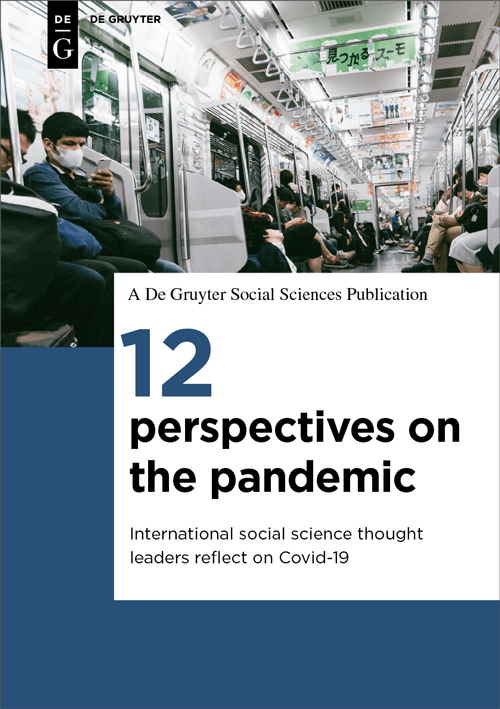Covid-19: Engaging with Complexity — If Not Now, When?
In a period of uncertainty will ‘complexity science’ lead the way in helping us make sense of the the constantly shifting adjustments people make in the natural cycle of the world?
This essay was first published in the free digital pamphlet 12 Perspectives on
the Pandemic: International Social Science Thought Leaders Reflect on Covid-19.
This Covid-19 pandemic has rapidly unleashed a tsunami of complexity and uncertainty. In the midst of it all, political and business leaders are under intense pressure to make their leadership count. But old narratives of certainty won’t work. We must bring complexity science, the science of uncertainty, out of the shadows and use it to inform leadership practice. If not now, when?
Complexity Science, The Science Of Uncertainty
Complexity science is the science of uncertainty. It helps us understand how the world, and the social world, really works. It reveals that far from being stable and certain, the familiar patterns of everyday life are continually recreated. What creates that sense of stability is a multitude of small adjustments that people make to one another, and to the physical world, every minute of every day.
Over time, complex social systems tend to become more entangled. Interdependencies mean that effects can spread rapidly across a system. Increasing globalization, fueled by the ease of travel and the power of technology, has created intricate interdependencies between countries. We have seen the effects of that entanglement in the rapid, global spread of the Covid-19 virus. We have seen it in the fast, worldwide spread of information, from scientific evidence to wild rumours.
Uncertainty abounds. What is known, clinically and behaviourally, is completely dwarfed by the unknown. We do not and cannot yet know how this pandemic will play out. We do not know whether life will return, in time, to a more familiar pattern, or whether it will be irrevocably changed in fundamental ways.
Action Amidst Uncertainty
Yet, we must take action. Amidst unprecedented uncertainty, individuals must make practical decisions about their day-to-day behaviour and how they live their daily lives. Business leaders must make decisions about their organization’s policies and practices. Political leaders must make decisions about national policies and how best to gain compliance.
In Charge, But Not In Control
Formal leaders remain in charge of businesses and public policy, while being in the midst of complexity and change, with scant information. They are under intense scrutiny as people seek certainty in an increasingly uncertain environment, so what they say and do, including failing to say and do anything, really matters. It is abundantly clear that formal leaders are on the receiving end of changing public opinion and emergent patterns of behaviour, as well as decisions made in other domains. They remain in charge when they cannot either predict or control what happens.
What Leaders Do And Say Matters
This does not mean ‘anything goes’. Far from it. Our new normal is emerging unpredictably right now. So, action, including inaction, really matters. It is the very stuff of emergence.
“It is time for those who are in charge in organizations and governments to take complexity science insights seriously.”
In a changing world, we cannot rely on the shorthand of habit. We must rethink the consequences of action and inaction. Keeping our lives on a familiar track requires us to rethink and adjust many things that we took for granted just days ago. Instead of reacting quickly and automatically, we must continually recalibrate our normal repertoire of responses, to rethink their consequences, and actively choose the best we can for the changing circumstances. We must stay alert to and to search for new and creative ways to keep things going, as the world changes, and as our actions collectively change the world. This moves us from fast, automatic thinking to slower, deliberate thinking which increases our cognitive load. Added to that, many of us are feeling a greater emotional burden, often negative, such as worry, anxiety, fear, guilt and more. It is emotionally as well as cognitively exhausting.
Out of the Shadows
Over the last 25 years, complexity science research in business and management has made significant progress. While there are no simple answers, we know a lot to help leaders make informed leadership choices. In the past, complexity science messages about remaining in charge without being in control, permanent uncertainty, change and interdependencies have proved too radical, too unpalatable for the mainstream. Now they seem only too obvious.
It is time for those who are in charge in organizations and governments to take complexity science insights seriously. If not now, when?
Learn more in this related title from De Gruyter
[Title Image via Getty Images.]
